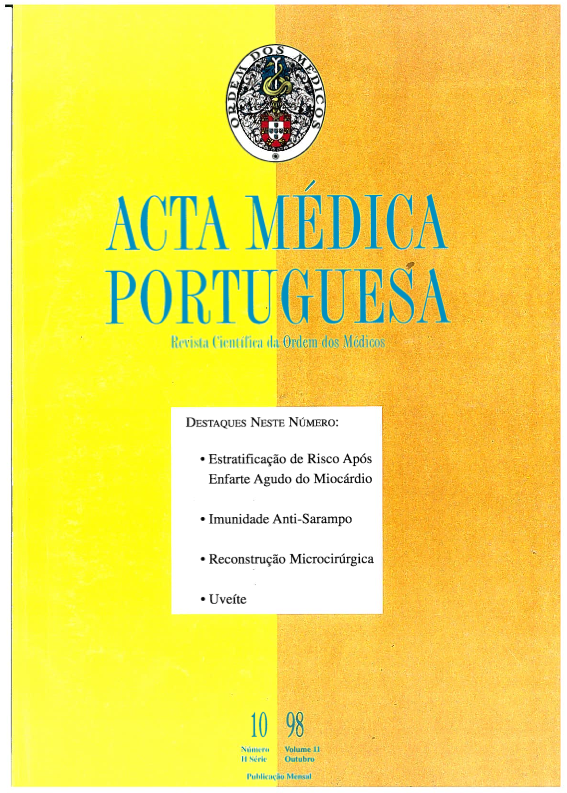Anti-measles igg concentration in maternal blood and in umbilical cord blood: according to the mother's vaccination status.
DOI:
https://doi.org/10.20344/amp.2335Abstract
A study on passive immunity against measles was conducted in four hospitals of Oporto, Portugal. The objectives were to assess whether maternal measles vaccination status was associated to the levels of measles IgG in maternal and cord sera, and with the transplacental transport efficiency. Cord and venous maternal blood samples were collected from 1539 mother-child pairs enrolled. An enzyme immunoassay was used to measure measles IgG levels in the study sera. Results were expressed in mIU/ml. Vaccination records were consulted. Geometric mean concentration of measles IgG among vaccinated mothers (730 mIU/ml; 95% CI 602 to 884 mIU/ml; n = 79) was significantly (P < 0.0001) lower than among their unvaccinated counterparts (1535 mIU/ml; 95% CI 1460 to 1613 mIU/ml; n = 1317). The same was observed in the corresponding cord sera: those born to vaccinated mothers had significantly (P < 0.0001) lower levels of measles IgG (1083 mIU/ml; 95% CI 908 to 1291) than the newborns of unvaccinated mothers (2230 mIU/ml; 95% CI 2119 to 2347). Transplacental transport efficiency was not related with maternal vaccination status (P = 0.67). Measles IgG levels observed in this Portuguese study were similar to those observed in a study conducted in South Africa, but higher than those reported in a British study. The differences in measles IgG levels between vaccinated and unvaccinated mothers (and corresponding newborns) are consistent with similar findings already published in different countries. The lower levels of measles IgG among children born to vaccinated mothers may lead to the anticipation of the recommended age to vaccinate against measles in Portugal.Downloads
Downloads
How to Cite
Issue
Section
License
All the articles published in the AMP are open access and comply with the requirements of funding agencies or academic institutions. The AMP is governed by the terms of the Creative Commons ‘Attribution – Non-Commercial Use - (CC-BY-NC)’ license, regarding the use by third parties.
It is the author’s responsibility to obtain approval for the reproduction of figures, tables, etc. from other publications.
Upon acceptance of an article for publication, the authors will be asked to complete the ICMJE “Copyright Liability and Copyright Sharing Statement “(http://www.actamedicaportuguesa.com/info/AMP-NormasPublicacao.pdf) and the “Declaration of Potential Conflicts of Interest” (http:// www.icmje.org/conflicts-of-interest). An e-mail will be sent to the corresponding author to acknowledge receipt of the manuscript.
After publication, the authors are authorised to make their articles available in repositories of their institutions of origin, as long as they always mention where they were published and according to the Creative Commons license.









